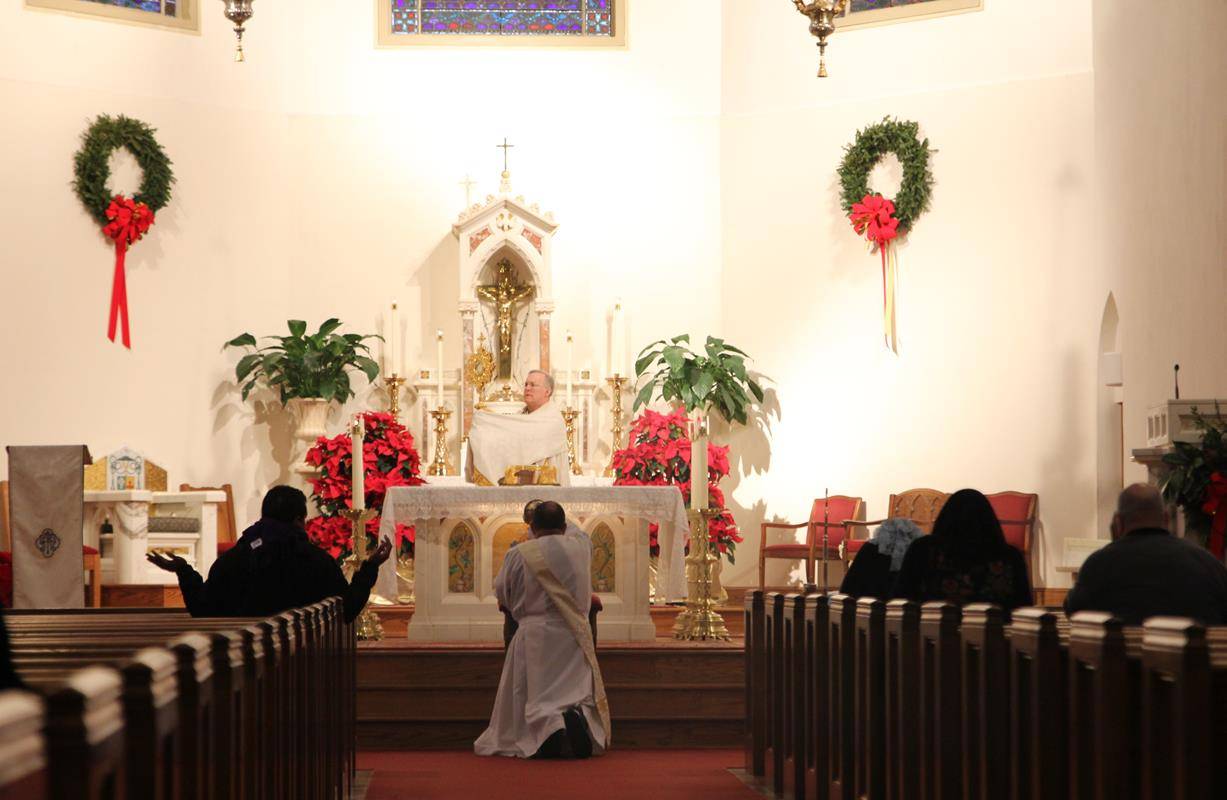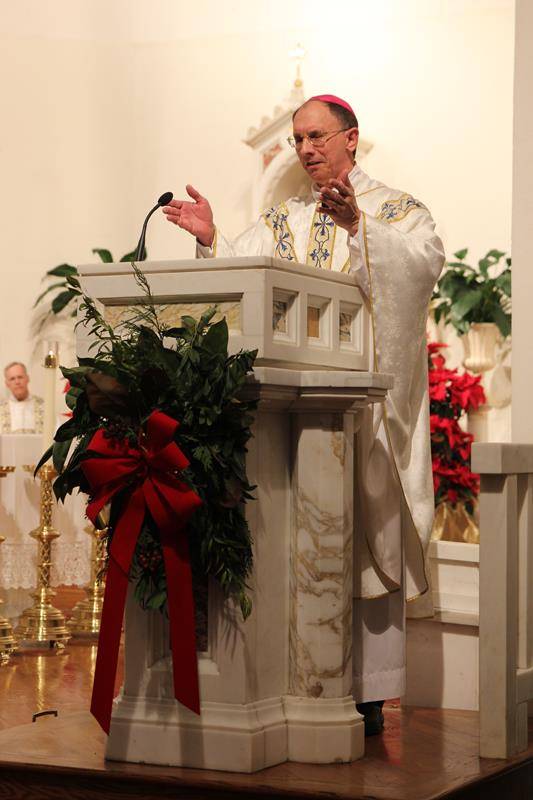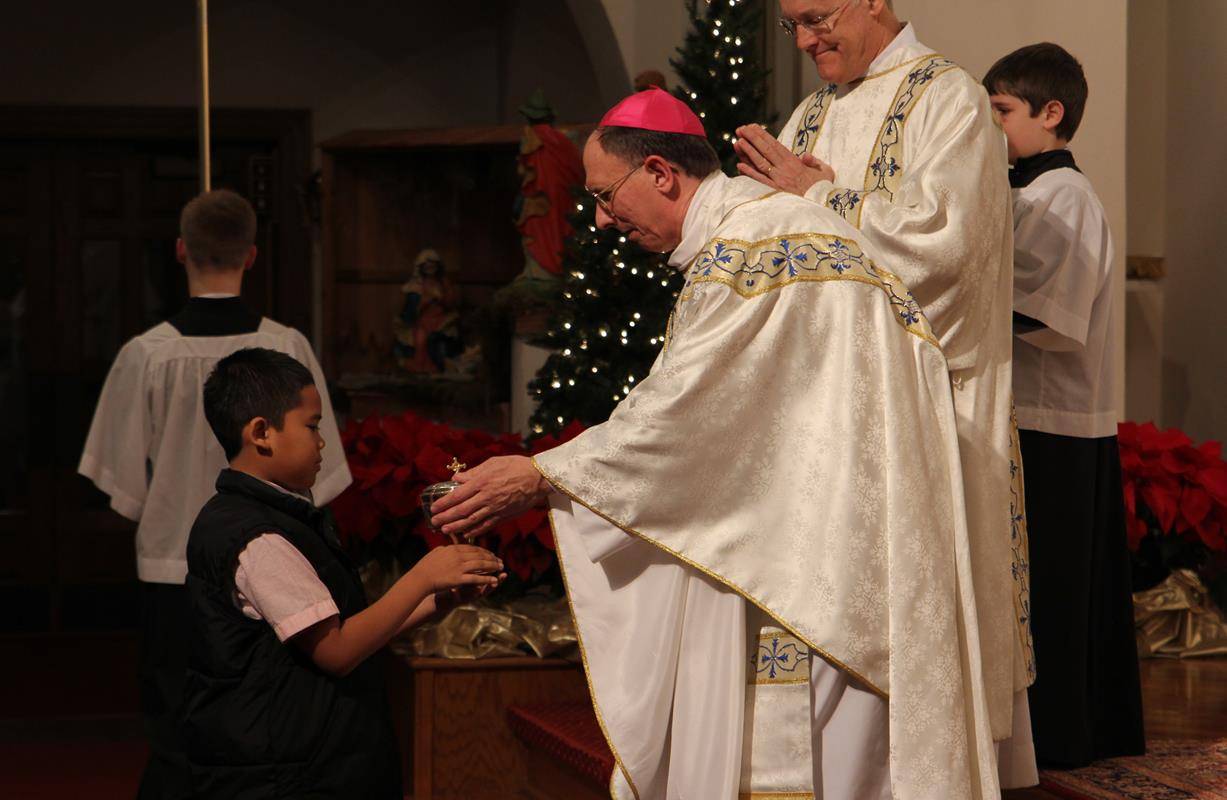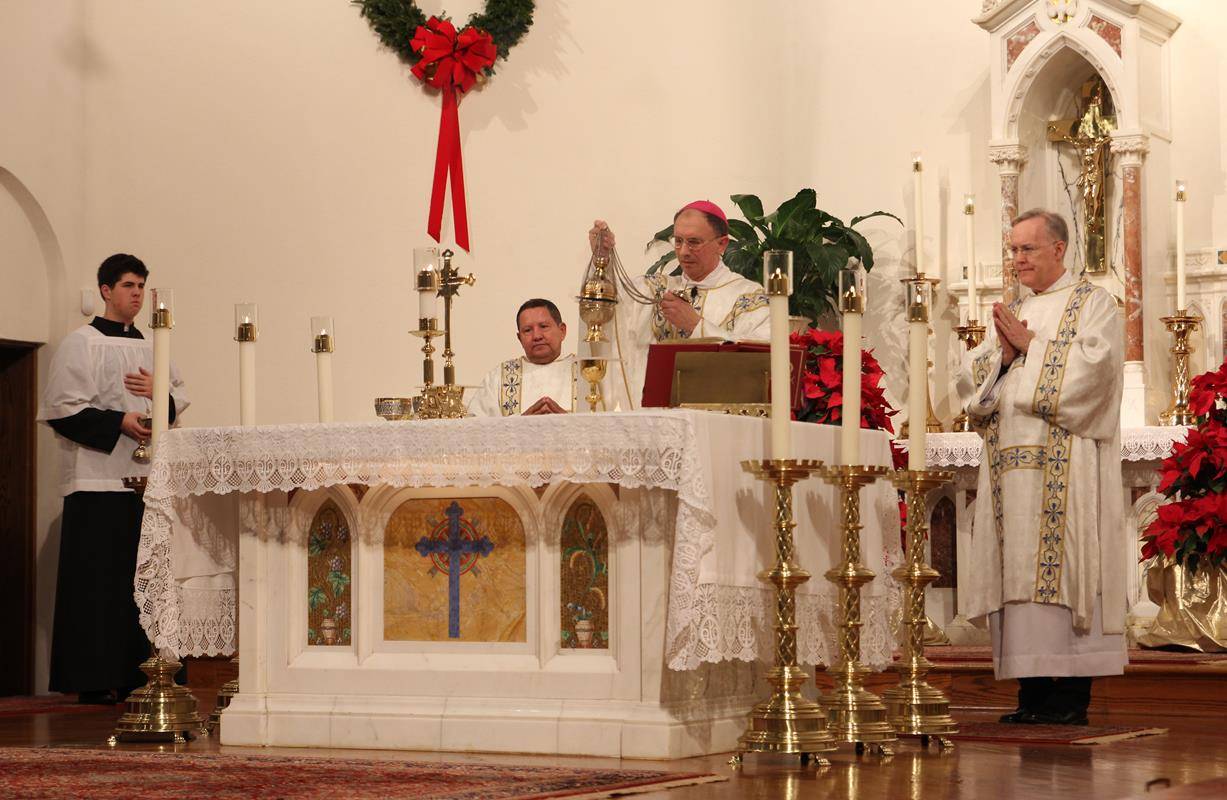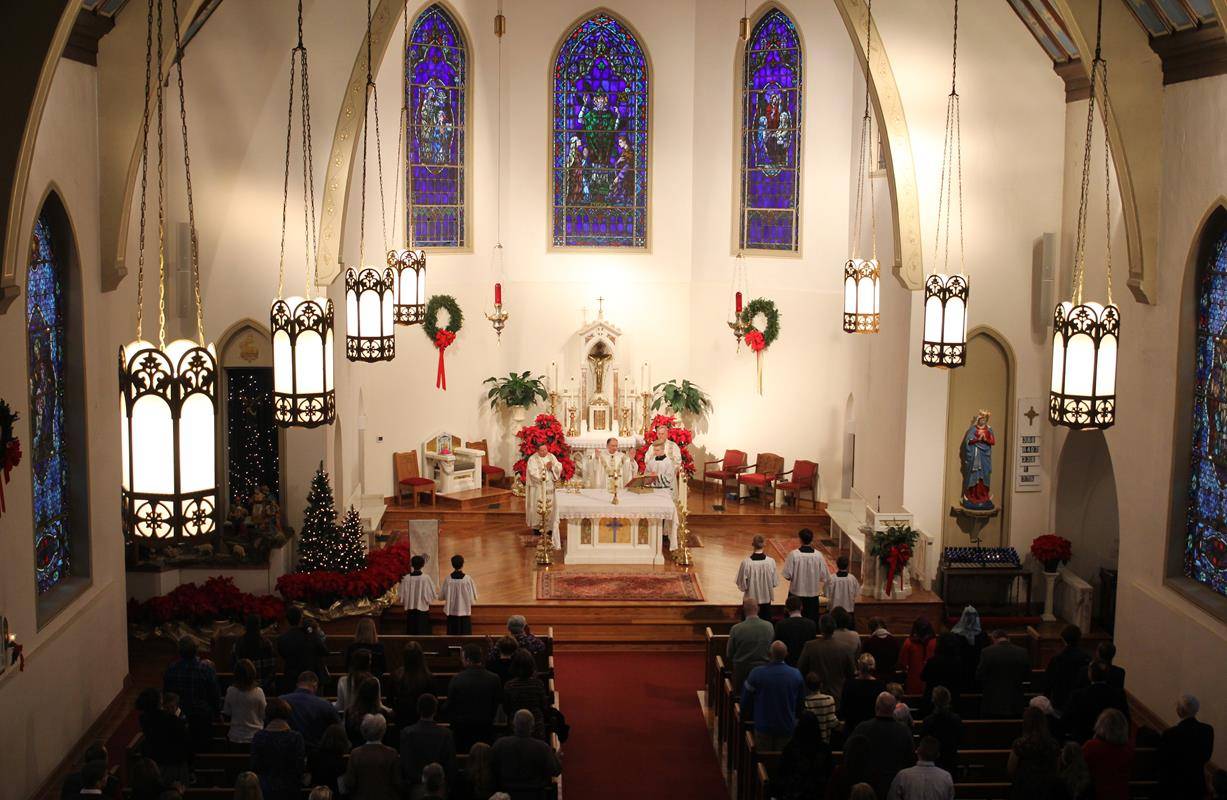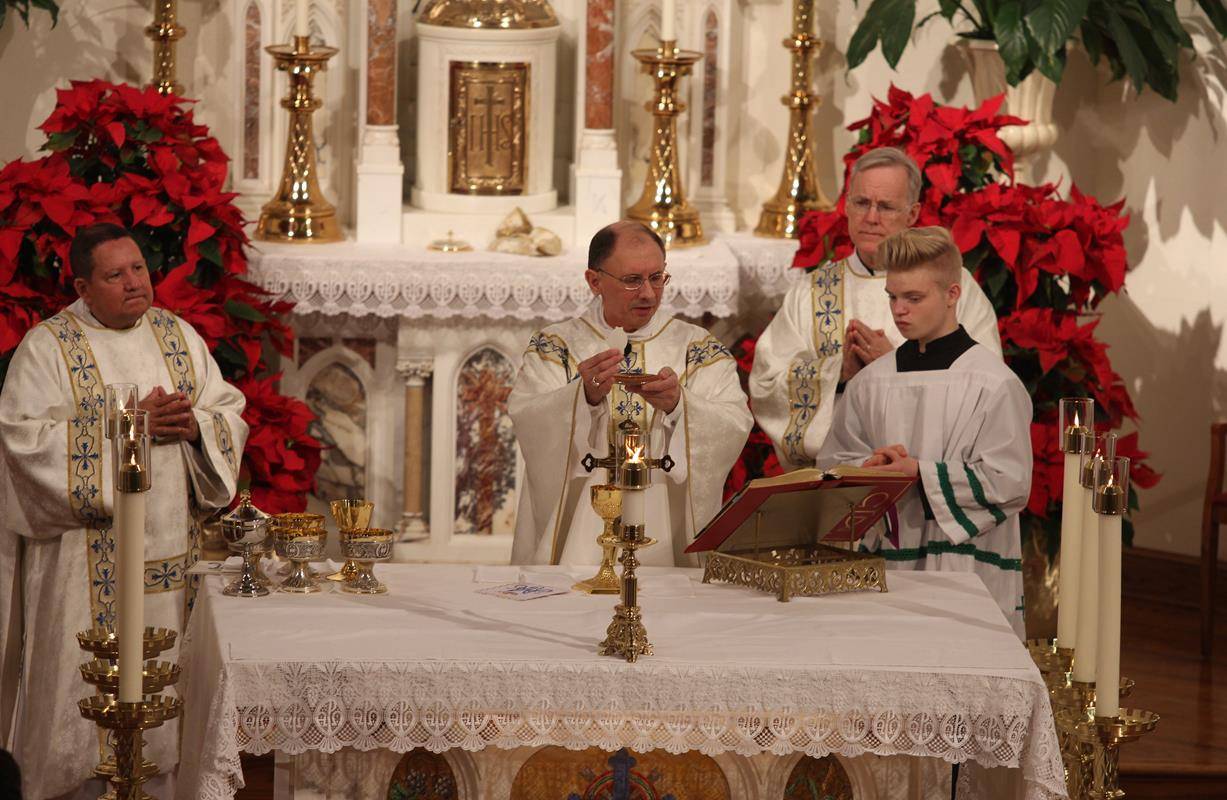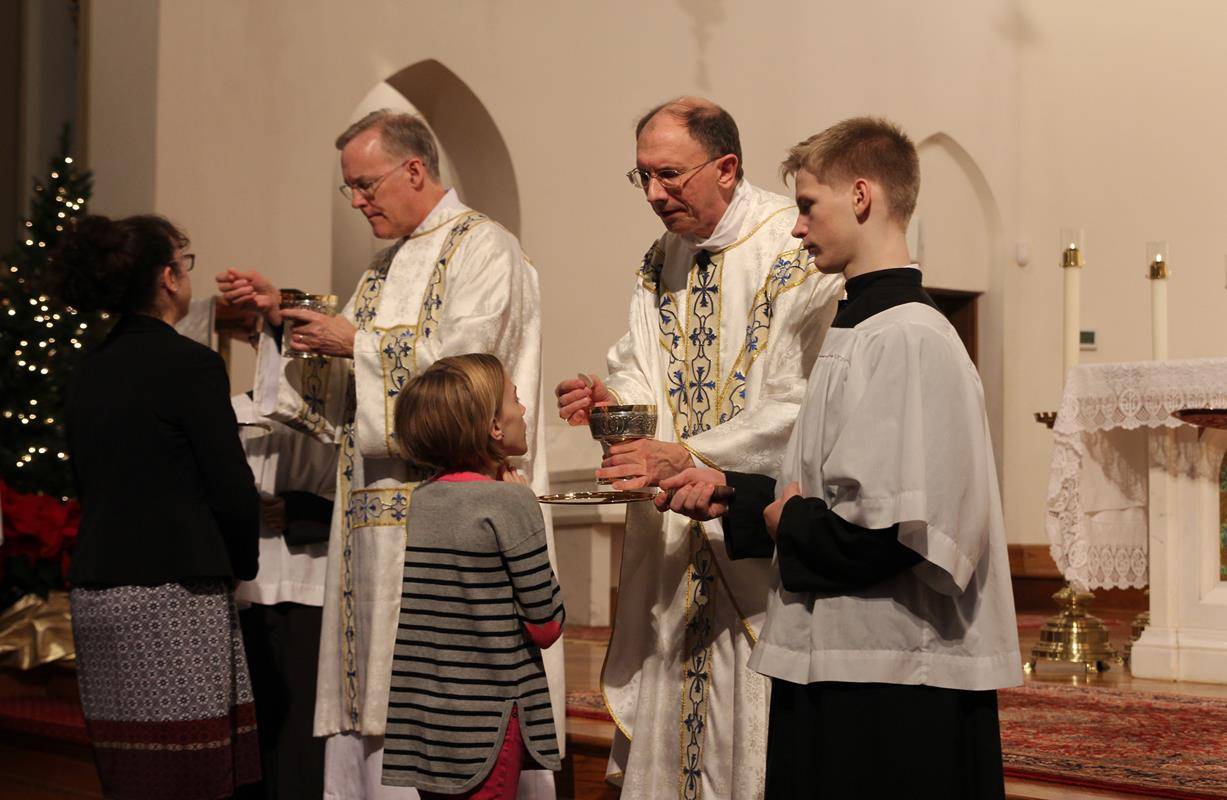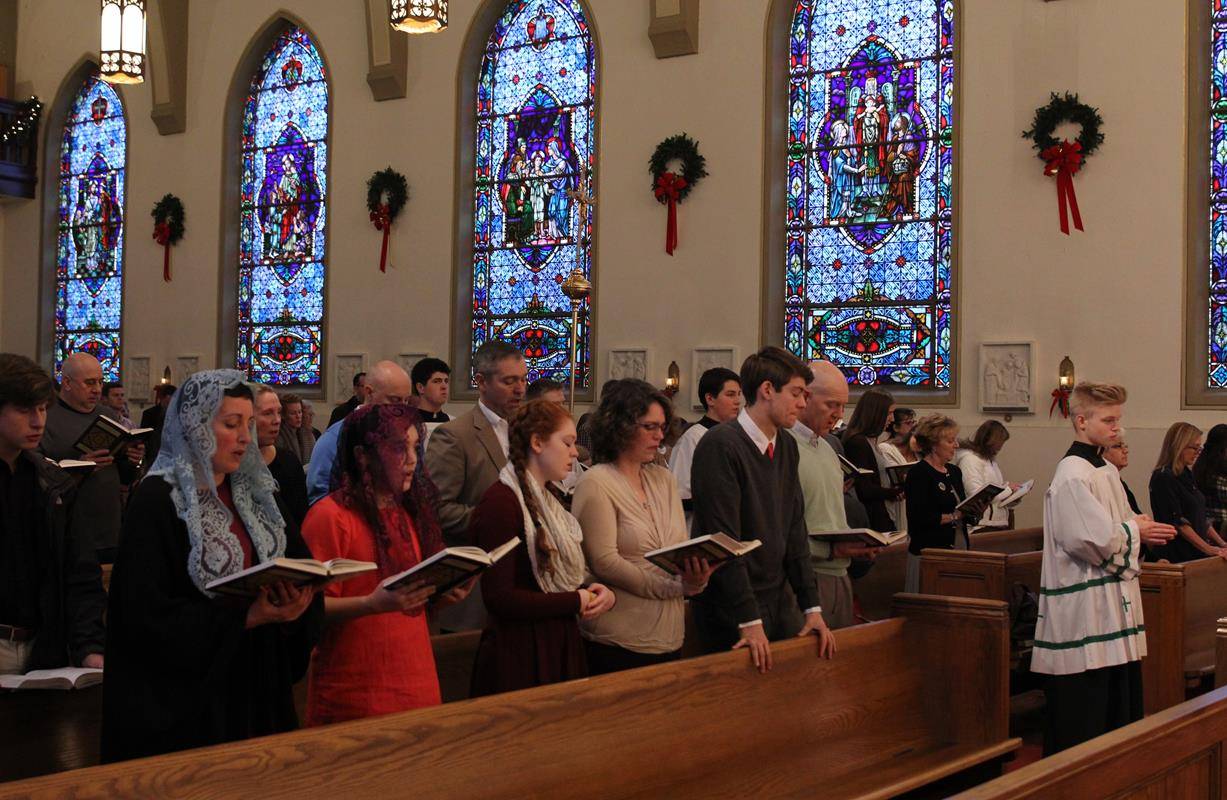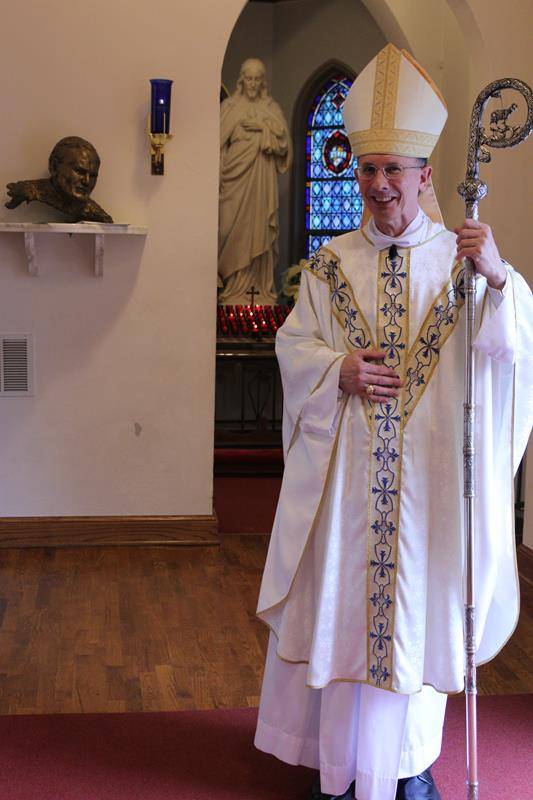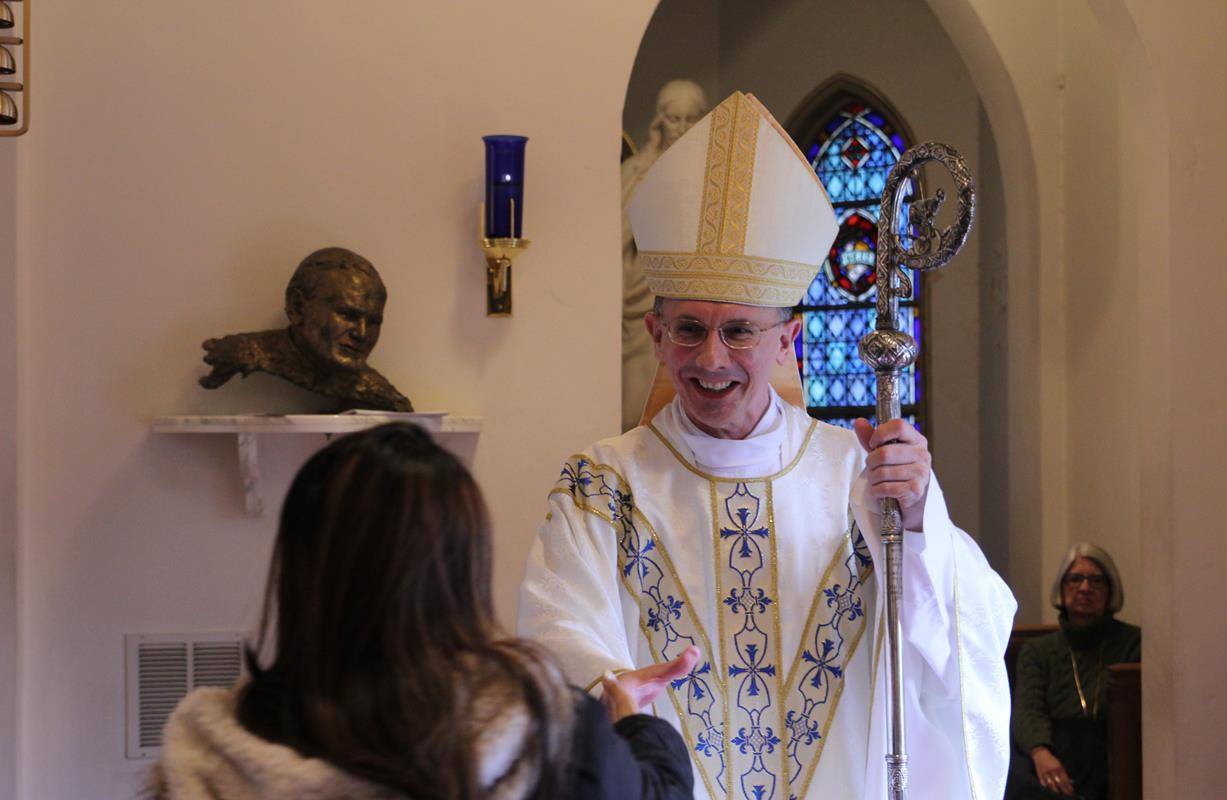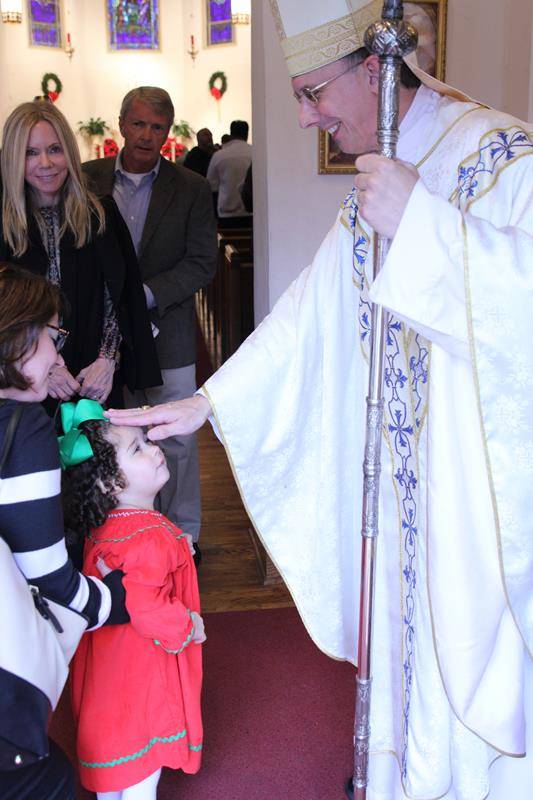CHARLOTTE — All Catholics are invited to mark the 44th anniversary of Roe v. Wade on its actual date with a special candlelight walk in uptown Charlotte Sunday, Jan. 22.
Sponsored by C-PLAN, the event will begin with 5 p.m. Mass at St. Peter Church, followed by a silent half-mile walk by candlelight to the federal co
urthouse to pray for an end to abortion. The walk will begin promptly at 6 p.m. in front of the church.
St. Peter Church is located at 507 S. Tryon St. in Charlotte. Parking is available in the underground garage next to the church.
For details, go to www.prolifecharlotte.org/event/candlelight-walk-for-life,
 Bishop Jugis announces Marian theme for Eucharistic Congress on Solemnity of Mary, Mother of God Jan. 1
Bishop Jugis announces Marian theme for Eucharistic Congress on Solemnity of Mary, Mother of God Jan. 1
CHARLOTTE — The new year brings with it some special Marian anniversaries in the Church, Bishop Peter Jugis noted in his homily at Mass on Jan. 1, the Solemnity of Mary, Mother of God.
“We begin this New Year 2017 as we begin every new year – continuing the Christmas season and honoring Mary, the Mother of God on the Octave of Christmas,” he said during Mass celebrated at St. Patrick Cathedral.
But, Bishop Jugis noted, “This New Year is special because in 2017, we are marking several important Marian anniversaries. So it seems appropriate that on this first day, drawing attention to our Blessed Mother Mary, we should make note of the special anniversaries coming up in 2017.”
This year marks the 100th anniversary of Our Lady’s apparitions at Fatima, Portugal, in 1917. This year also marks the 100th anniversary of St. Maximilian Kolbe establishing the Militia of Mary Immaculate.
“We know the sufferings, of course, that Maximilian Kolbe underwent during the occupation of Poland,” Bishop Jugis said. “That movement he established as a young priest in 1917, the Militia of Mary Immaculate, was a program of spiritual renewal through dedication and consecration to the Blessed Virgin Mary. Since then, it has grown into a worldwide movement of spiritual renewal.”
Because of these two Marian anniversaries, he continued, some have suggested that 2017 should be called “The Year of the Immaculate Heart of Mary.”
“There will be big festivities going on this year in Fatima, Portugal,” he said. “At Fatima, Our Lady reveals her Immaculate Heart to us. She says, ‘In the end my Immaculate Heart will triumph.’ We might ask the question: Triumph over what? And, of course, we know the answer: Triumph over all evil.”
Mary’s purity, sinlessness and holiness triumphs over all evil as we see in her Immaculate Conception, he said. God allowed her, at the moment of her conception, to triumph over original sin, crushing the head of the serpent. “In the end she says, ‘My Immaculate Heart will triumph,’ she assures us.”
Bishop Jugis shared that there is another interesting anniversary this year. Thirty years ago on Jan. 1, 1987, St. John Paul II announced a Marian holy year for the Church, to run mid-1987 through mid-1988. To celebrate that Marian holy year, the pope wrote an encyclical about Mary, “Redemptoris Mater.”
“To help us celebrate these special anniversaries this year, we chose a line from Mary’s Magnificat as the theme of this year’s Eucharistic Congress: ‘My soul proclaims the greatness of the Lord,’" Bishop Jugis announced.
“Those words come from the account of the Blessed Mother’s visit to her cousin Elizabeth, the visitation. At her visitation to her cousin Elizabeth, Our Lady, with the Infant Jesus in her womb, is filled with joy and she praises God: ‘My soul proclaims the greatness of the Lord. My soul magnifies the Lord.’”
Her words are fittingly echoed in the theme of the 2017 Eucharistic Congress, he continued.
"When we are nourished with the Body and Blood of Christ in Holy Communion and we receive Christ within us, we receive abundant graces, abundant holiness, so that our lives become a living proclamation of the Lord’s greatness, His goodness and His holiness.”
“The Eucharist manifests itself by our living proclamation of God’s goodness and greatness in our lives,” he said.
The first day of the Eucharistic Congress in Charlotte is also a Marian holy day: the feast of the birth of Mary, Sept. 8.
“We begin the Year of Our Lord 2017 begging the maternal intercession and protection of our Blessed Mother. What a great way to begin a new year – asking the Holy Mother of God to protect us and to intercede for us,” Bishop Jugis said.
At the conclusion of his homily, he drew from a beautiful prayer in the Liturgy of the Hours, from the Common of the Blessed Virgin Mary. Bishop Jugis shared that he believes we can all use this verse in living our faith this year under the watchful eye of Our Blessed Mother: “O Jesus, help us to live as worthy sons and daughters of so noble a mother.”
— SueAnn Howell, Senior reporter


